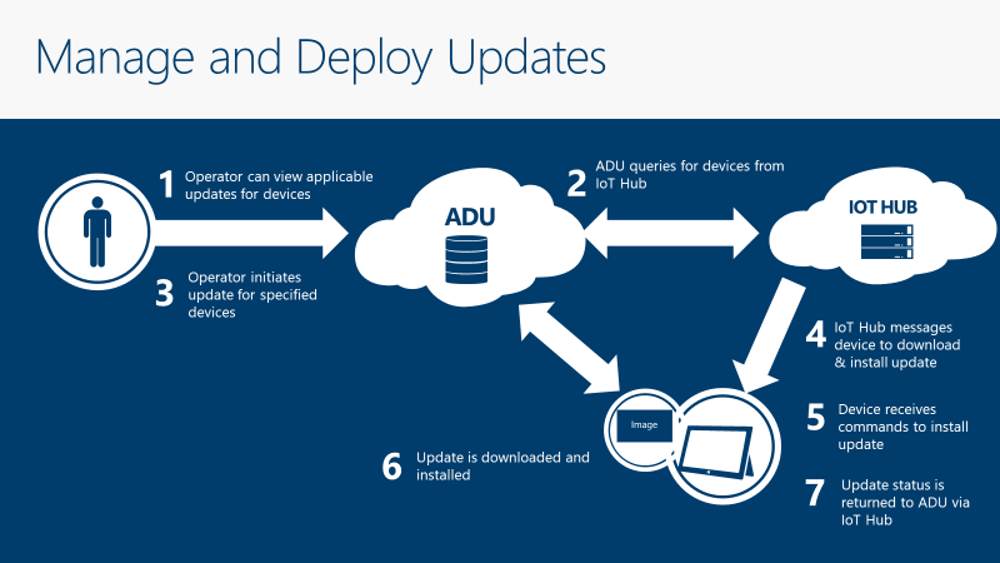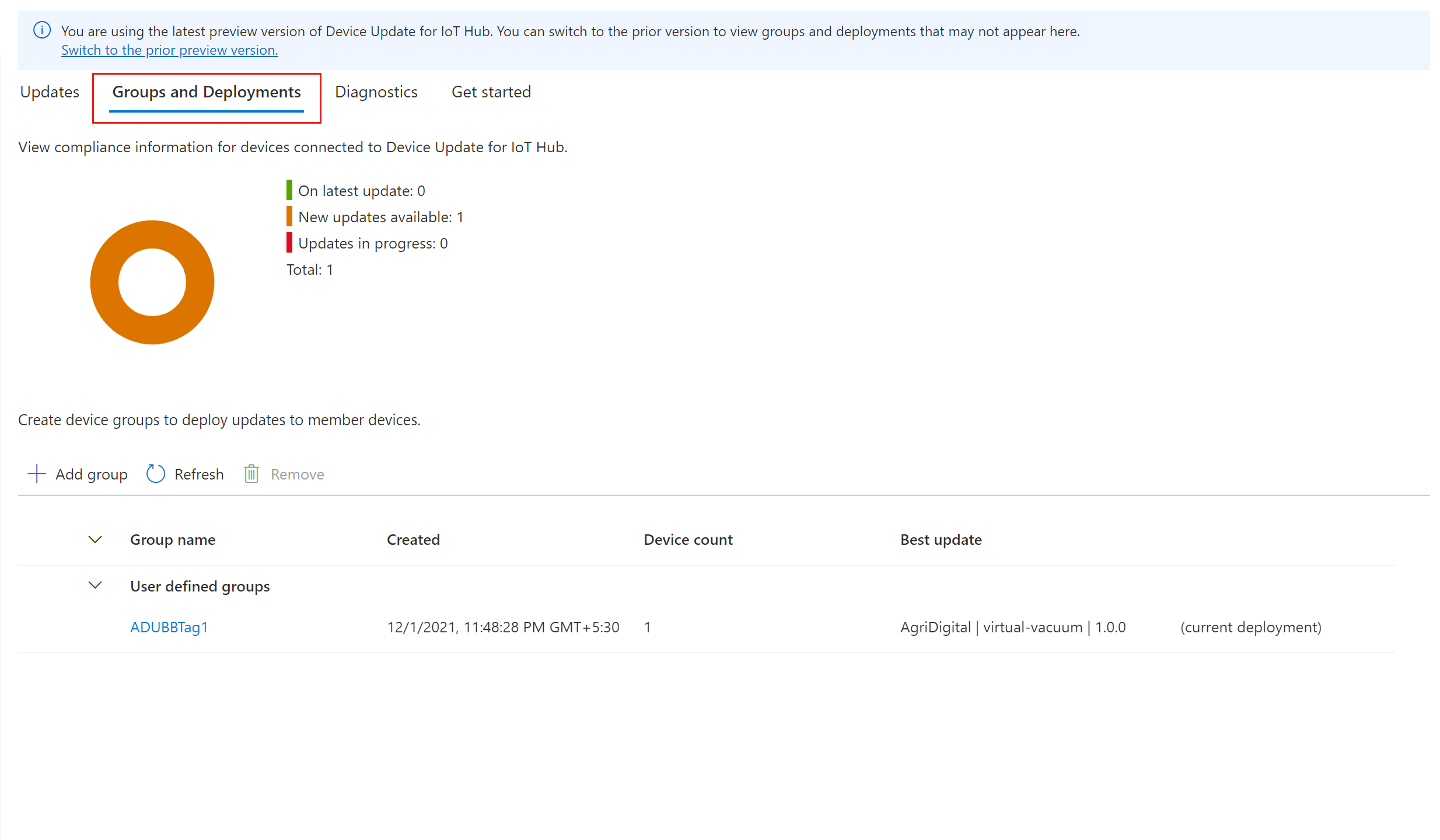Best Remote IoT Device Update: Your Ultimate Guide
In today's rapidly evolving technological landscape, the best remote IoT device update is not just a trend but a necessity for businesses and individuals alike. The Internet of Things (IoT) has transformed how we interact with technology, making it possible to control and monitor devices remotely. Whether it's for home automation, industrial applications, or personal convenience, staying updated with the latest advancements in IoT devices is crucial.
As more devices become interconnected, the need for efficient and secure updates has never been more important. Remote IoT device updates ensure that your devices remain functional, secure, and optimized for performance. This guide will delve into the significance of remote updates, the best practices, and the top solutions available in the market.
By the end of this article, you will have a comprehensive understanding of how remote IoT updates work, their importance, and how to choose the best solution for your needs. Let's dive in!
Read also:Ricardo Herranz Net Worth
Table of Contents
- Introduction to Remote IoT Device Updates
- Why Are Remote Updates Important?
- Key Components of IoT Updates
- Best Practices for Remote Updates
- Top Solutions for Remote IoT Updates
- Security Considerations
- Cost Analysis
- Case Studies
- Future Trends in Remote IoT Updates
- Conclusion
Introduction to Remote IoT Device Updates
In the world of IoT, remote device updates play a pivotal role in maintaining the functionality and security of connected devices. These updates ensure that devices operate efficiently and are protected against vulnerabilities. The best remote IoT device update strategies are designed to minimize downtime and maximize user convenience.
Remote updates are essential for a wide range of applications, from smart home devices to industrial machinery. By automating the update process, businesses can reduce costs and improve device performance. This section will explore the basics of remote IoT updates and their significance in today's connected world.
How Remote Updates Work
Remote updates typically involve sending firmware or software updates to devices over a network. This process requires a secure and reliable connection to ensure that updates are delivered without errors. The best remote IoT device update solutions utilize advanced technologies such as over-the-air (OTA) updates to streamline the process.
Why Are Remote Updates Important?
The importance of remote updates cannot be overstated. With the increasing number of connected devices, manual updates are no longer feasible. Remote updates provide a scalable solution that ensures devices remain up-to-date without the need for physical intervention.
Key benefits of remote updates include:
- Improved device performance
- Enhanced security
- Reduced maintenance costs
- Increased user satisfaction
Impact on Businesses
For businesses, remote updates can significantly impact operational efficiency. By automating the update process, companies can allocate resources more effectively and focus on core activities. This section will examine the impact of remote updates on various industries, including manufacturing, healthcare, and retail.
Read also:Dirco Wont Bow To Pressure From Donald Trump Refuses To Drop Case Against Israel Despite Tariffs
Key Components of IoT Updates
A successful remote IoT device update involves several key components. These include:
- OTA protocols
- Device management platforms
- Security measures
- Data analytics
Each component plays a critical role in ensuring that updates are delivered seamlessly and securely. This section will provide an in-depth look at each component and its importance in the update process.
OTA Protocols
Over-the-air (OTA) protocols are essential for delivering updates to IoT devices. These protocols enable devices to receive updates wirelessly, eliminating the need for physical access. Popular OTA protocols include MQTT, CoAP, and HTTP.
Best Practices for Remote Updates
Implementing the best remote IoT device update practices is crucial for ensuring success. Some of the best practices include:
- Regular testing of updates
- Implementing rollback mechanisms
- Monitoring device performance
- Ensuring secure connections
This section will explore these practices in detail and provide actionable insights for businesses and individuals.
Testing and Validation
Before deploying updates, thorough testing and validation are necessary to ensure compatibility and functionality. This process involves simulating real-world scenarios to identify potential issues and address them before deployment.
Top Solutions for Remote IoT Updates
Several solutions are available for remote IoT device updates, each offering unique features and benefits. Some of the top solutions include:
- AWS IoT Device Management
- Microsoft Azure IoT Hub
- Google Cloud IoT Core
- Particle.io
This section will provide an overview of these solutions and their capabilities, helping you choose the best option for your needs.
AWS IoT Device Management
AWS IoT Device Management is a powerful platform that enables businesses to manage and update IoT devices at scale. It offers features such as over-the-air updates, device monitoring, and security management. By leveraging AWS's robust infrastructure, businesses can ensure reliable and secure updates for their IoT devices.
Security Considerations
Security is a top priority when it comes to remote IoT device updates. Ensuring that updates are delivered securely is essential to protect devices from cyber threats. Best practices for securing remote updates include:
- Using encryption
- Implementing authentication protocols
- Regularly updating security measures
This section will delve into the security challenges associated with remote updates and provide strategies to mitigate them.
Data Encryption
Data encryption is a critical component of secure remote updates. By encrypting data during transmission, businesses can protect sensitive information from unauthorized access. This section will explore the importance of encryption and provide guidance on implementing it effectively.
Cost Analysis
The cost of implementing remote IoT device updates can vary depending on several factors, including the number of devices, the complexity of updates, and the chosen solution. This section will provide a cost analysis of remote updates and help you make informed decisions about budget allocation.
Cost-Benefit Analysis
A cost-benefit analysis can help businesses evaluate the financial impact of implementing remote updates. By comparing the costs of manual updates versus automated updates, businesses can determine the most cost-effective solution for their needs.
Case Studies
Real-world examples of successful remote IoT device updates can provide valuable insights into best practices and potential challenges. This section will present case studies from various industries, highlighting the benefits and lessons learned from implementing remote updates.
Case Study: Smart Home Devices
A leading smart home device manufacturer implemented remote updates to improve device performance and security. By automating the update process, the company reduced maintenance costs and improved customer satisfaction. This case study will provide a detailed analysis of the implementation process and its outcomes.
Future Trends in Remote IoT Updates
The future of remote IoT device updates is promising, with advancements in technology driving innovation. Some of the emerging trends include:
- AI-driven updates
- Edge computing
- 5G connectivity
This section will explore these trends and their potential impact on the future of remote updates.
AI-Driven Updates
Artificial intelligence (AI) is transforming the way updates are delivered and managed. By leveraging AI, businesses can automate the update process and optimize device performance. This section will examine the role of AI in remote updates and its potential benefits.
Conclusion
In conclusion, the best remote IoT device update solutions are essential for maintaining the functionality and security of connected devices. By implementing best practices and leveraging advanced technologies, businesses and individuals can ensure seamless and secure updates. We encourage you to share your thoughts and experiences in the comments section below and explore other articles on our site for more insights into the world of IoT.


